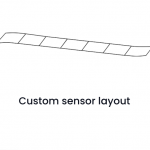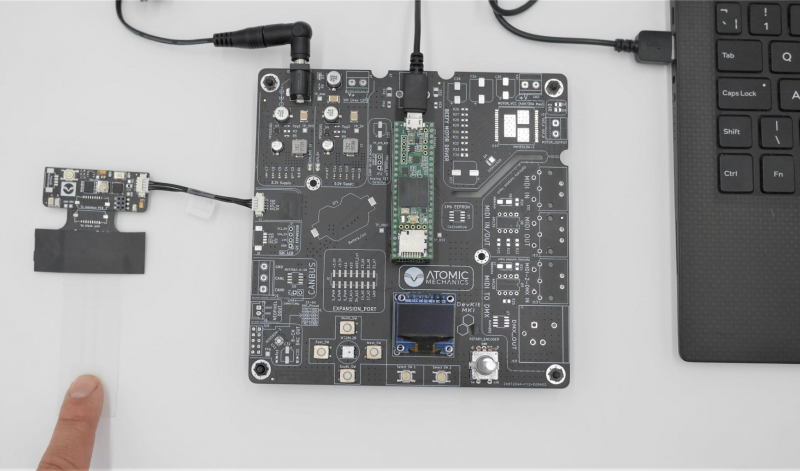Spinout Atomics Mechanics Ltd have developed a completely new type of human machine interface (HMI) which is flexible, transparent and robust
These innovative variable-force sensors offer a unique set of benefits to the consumer electronics, automotive, robotics and embedded sensor markets with long term applications in electronic skins (e-skin).
Atomic Mechanics Ltd., design, develop, manufacture, and sell a range of proprietary sensory, touch-interfaces and actuation devices based on graphene-polymer films.
The graphene-polymer film core technology platform utilised by Atomic Mechanics allows the manufacture of flexible film-based devices as well as rigid chip-based devices. In its initial start-up phase, Atomic Mechanics will focus on the development and manufacture of the core technology of film-based devices especially for flexible force/pressure sensors.

The sensors can be manufactured to any shape, size and can be integrated into curved or flexible materials opening up new design possibilities.
Graphene-polymer film technology offers a unique competitive advantage over existing technologies, in that there is a growing global trend for interfaces to be more flexible, allowing them to be utilised on more sophisticated devices, as well as be mounted on 3D surfaces and compatible with Roll-to-Roll manufacturing.
This technology also offers competitive advantage over existing touch interfaces adding true force and pressure sensitivity. The flexible films can also be integrated onto displays due to high optical transparency. They are also ultra-thin (less than 10 microns thickness) and micron-scale spatial resolution, enabling integration into bendable and flexible devices.
The technology could be evolved into micro actuators or e-skins which can capture huge amounts of data about the surfaces they interact with.
Evaluation Kit
Atomic Mechanics have recently launched evaluation kits for companies to purchase which makes it easy to assess the transparent touch sensor technology for integration into commercial products. The AM Evaluation Kit (EVK) is a flexible sensor film and PCB that is a low-cost and simple way to quickly evaluate the key benefits of our sensor technology and will allow you to understand how you can design it into your next product.

2x EVK Transparent Sensor Film
1x EVK Drive Circuitry
1x EVK Converter Circuitry
1x Molex Groove Connector
1x USB Cable
1x Power Cable
The Atomic Mechanics’ team is Dr Christian Berger (co-founder), Prof. Aravind Vijayaraghavan (co-founder) and Daniel Melendrez (lead electronics engineer).




